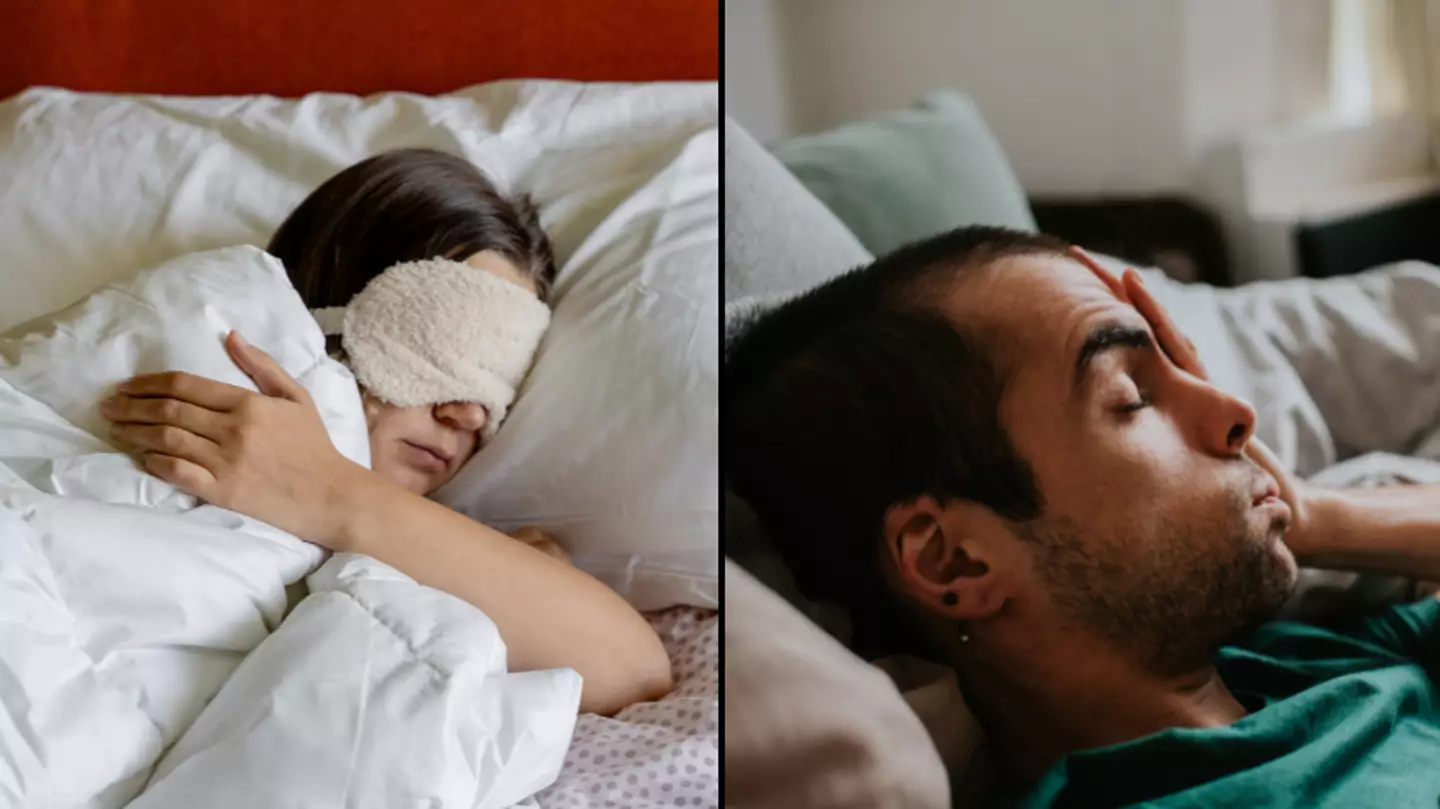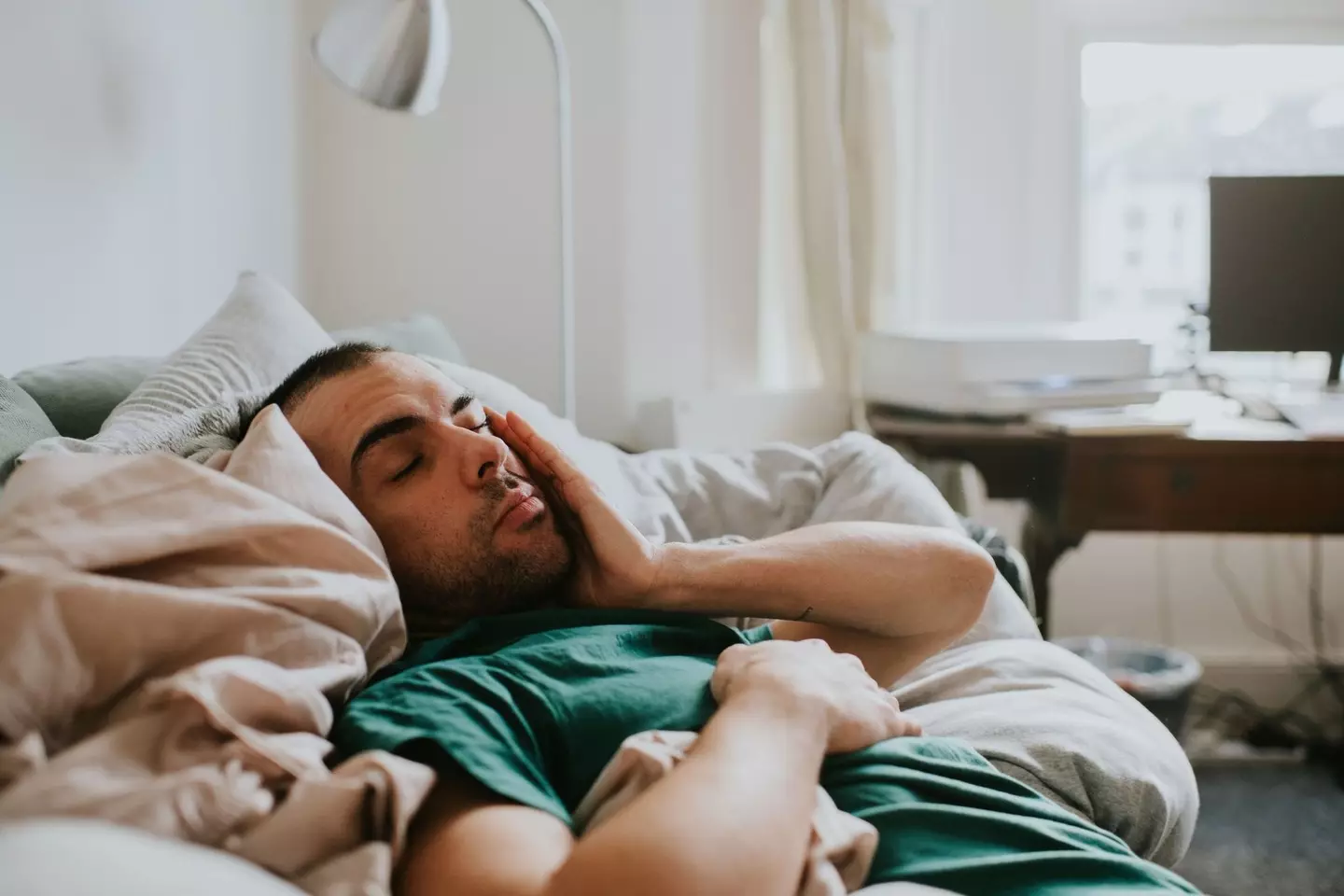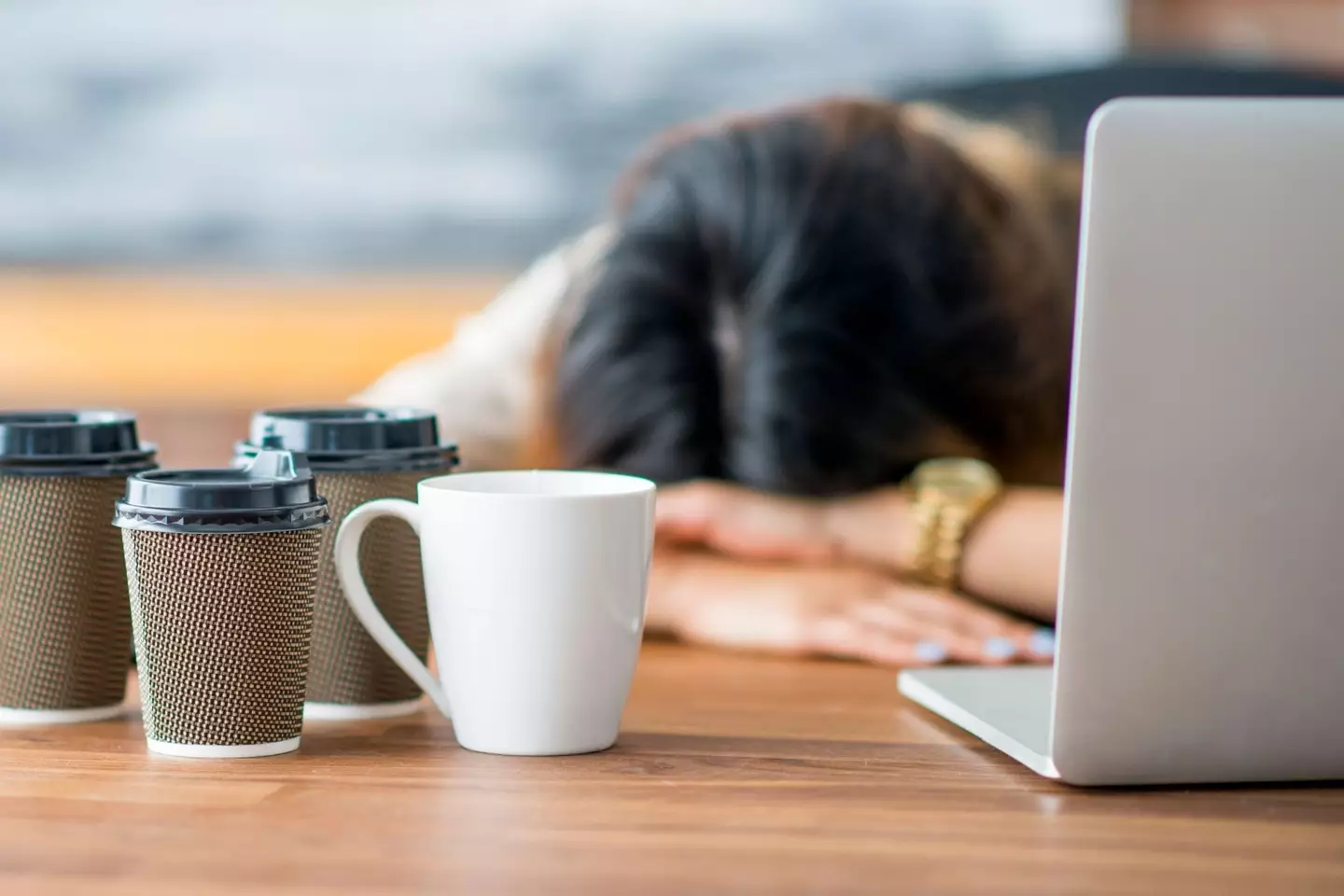
Feeling tired all of the time can sometimes point to something more than being worn out by a hard day.
Whether you think about going to bed as soon as you wake up or struggle to get by without yawning often, this could be a sign that something more is going on.
A YouGov study found that 1 in 8 people in the UK have reported feeling tired ‘all the time’ and 1 in 4 feel tired ‘all the time’.
This type of tiredness can interfere with your day-to-day life and could come from various sources.
Advert
Let’s find out what they could be:
You’re not getting enough sleep
While this might be the obvious cause, it’s one that really knocks your body about.
When we don’t sleep as much as we need, it can leave us feeling foggy all day.
There’s also a lot of important things happening to our brain and body while we’re unconscious, and disrupting that can leave you unable to concentrate, it can make you irritable and much more.

Your work pattern
If you’re not on a steady work pattern each day, your sleep could be thrown through a loop.
From working mornings then to afternoons and finally to nights on a rotation, your circadian rhythm (the time where your body naturally tells you it wants to wind down for sleep) becomes shifted.
Your body will no longer understand when it should be sleeping and this can actually make you more prone to infection and illness, according to expert nutritionist Kerry Torrens.
You’re stressed out
Torrens explained to Olive Magazine that, while some stress is normal to experience each day, if you’re finding that your stress is getting to be too much, it could be what’s causing you to lose those important Zzz’s.
Try some calming techniques or avoiding stressful situations if you can and see how your sleep changes.

You’re drinking too much caffeine
Now, you might not think that you’re drinking too much, but being over-reliant on coffee and energy drinks can make you both tired and jittery.
The expert explained how too much caffeine is associated with night-time waking and sleepiness.
You’re not drinking enough water
Dehydration can cause a range of symptoms, but one of those can be increased fatigue.
As well as lower energy and poor concentration, not having enough water can work against your sleeping habits.
You might have nutrient deficiencies
If you feel tired after having a good night of sleep, you could be deficient in B12, D, or Iron.
If you think this could be it, talk to your GP about a potential blood test to find out.

Your diet is naff
Say goodbye to fast food all the time and choccy biscuits, because these foods could be making your sleep difficult.
Torrens explained that this is because if you ‘don’t eat adequate amounts of calories and macronutrients, like protein, your body can turn to reserves and start breaking down fat stores and muscle, which may lead to fatigue’.
While you might think fast food gives you more than enough calories, that’s not actually true and studies have proven that.
You’re overweight
Being overweight could put you at risk of developing sleep disorders including sleep apnoea, which will leave you feeling knackered.
Your GP will be able to investigate this if you think it’s the cause of your tiredness.
You have a medical condition
There are a lot of conditions which can make you tired, such as hypothyroidism (anyone else a congenital hypothyroidism girlie?), chronic fatigue syndrome, multiple sclerosis and even long Covid.
You’re dependent on drugs or alcohol
Studies have shown that people who are dependant on drugs or alcohol are more likely to experience excess tiredness.
Topics: Health, Mental Health, Sleep, NHS
